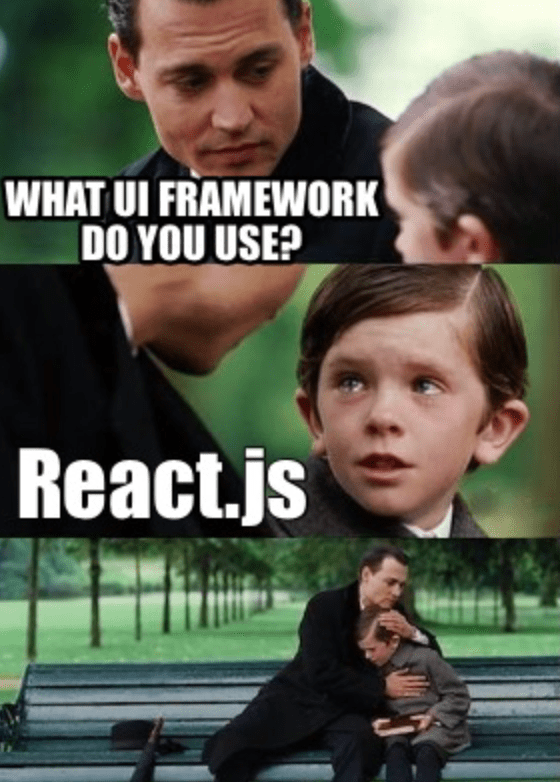
Do companies use VueJS?
Why are so many tech giants turning to VueJS? What makes this particular framework special and how does its use impact businesses? Is it truly a game changer in the world of front-end development? These are the questions that we aim to answer in our exploration of how companies utilize VueJS.
According to sources like InfoWorld and TechRepublic, the tech industry has long faced the challenge of finding flexible, efficient, and user-friendly tools for front-end development. InfoWorld refers to the increasingly complex nature of front-end development, while TechRepublic notes the difficulty developers face with the steep learning curve of some widely-used tools. The need for a solution to these complications is backed by numerous surveys conducted in the USA, highlighting a widespread desire for more streamlined and intuitive frameworks.
In this article, you will learn about the rise of VueJS as a popular solution to these issues in front-end development. We’re going to delve into its features, the reasons behind its adoption by major companies, and its potential long-term impact on the way businesses develop digital interfaces.
We’ll also hear firsthand from tech industry experts on the practical benefits of VueJS, take a look at case studies from companies that have adopted this framework, and explore prognoses for the future of VueJS in corporate development environments.

Understanding Key Definitions of VueJS in Companies
VueJS, also known as Vue, is a popular JavaScript framework used for building user interfaces. Unlike other monolithic frameworks, Vue has been designed from ground up to be incrementally adoptable. In simpler terms, it means that it can be easily integrated into other projects or used alongside other libraries.
Companies refer to entities engaged in commercial, industrial, or professional activities. They can be for-profit entities or not-for-profit organizations that operate to fulfill a charitable mission or to promote a particular cause.
When we say ‘Companies use VueJS’, it means that these commercial entities use the VueJS framework for developing their web applications, largely due to its simplicity, flexibility, and capability to enable rapid product development.
VueJS: A Secret Weapon in Today’s Tech-Savvy Companies
Vue.js, often considered an underdog among JavaScript frameworks, is gradually gaining recognition in corporate affairs, given its unique features and benefits. Emerging as a robust tool for designing UIs, Vue.js is becoming a popular choice for various companies across different sectors.
Why Corporates are Turning to Vue.js
There are several reasons why Vue.js is becoming the preferred JavaScript framework in the corporate world. One of the biggest reasons is its simplicity. Vue.js’s learning curve is relatively smoother compared to Angular or React, making it easier for developers to get started with. With its simple structure, Vue.js allows for easier integration into projects and faster rendering of webpages.
Another factor contributing to its popularity is that Vue.js is a progressive framework. This means that it’s designed to gradually adopt, thus empowering developers to write high-quality codes. Besides, with conditional rendering and two-way data binding, Vue.js enables an efficient coding environment, thereby improving productivity.
Corporates That Have Embraced Vue.js
Several well-known companies have started using Vue.js for developing their applications.
- Alibaba: The multinational conglomerate has been using Vue.js in its front-end development, underlining the framework’s capability to handle large-scale applications.
- Xiaomi: The famous electronics company has also implemented Vue.js to enhance its web interface and make it more robust and dynamic.
- Grammarly: Known for its digital writing assistant tool, Grammarly leverages Vue.js to provide a user-friendly and efficient interface to its users.
- Nintendo: The leading gaming company has also integrated Vue.js into its front-end development to facilitate an interactive gaming experience.
Vue.js also presents companies with options for hiring dedicated Vue.js developers, allowing them to provide an accelerated and efficient software development cycle. In addition to this, due to its MVVM architecture, Vue.js maximizes the separation of concerns, thereby enhancing readability and maintainability of codes.
With the rapid evolution of the digital tech industry, organizations need adaptable and flexible web technologies like Vue.js to keep up with changing demands. Vue.js, with its simple yet powerful features, is indeed proving to be an underdog stealing the limelight in corporate affairs.
Transforming Business Outcomes with VueJS: Real-time Company Case Studies
VueJS: Widespread Adoption?
Is VueJS really utilized by the world’s leading companies? You bet it is! In today’s competitive business landscape, companies are always on the hunt for technologies that can help perform tasks more efficiently, cater to users more effectively, and meet the ever-evolving market demands. The need for faster, user-friendly interfaces with low overhead costs led to the adoption of VueJS by top-tier companies.
Reputed for being a progressive JavaScript framework being used to create user interfaces without any extra configuration effort, VueJS has rapidly carved out a space for itself. Technological behemoths such as Alibaba, Xiaomi, and Adobe are using VueJS because of its simple and easy-to-understand syntax that improves project efficiency. They consider VueJS as a key tool in their arsenal due to its scalability and flexibility both in its ecosystem and its design architecture.
Why VueJS: Unraveling the Challenges
Despite the perks offered by VueJS, companies often face difficulties when trying to fully integrate it into their projects. The challenges inevitably vary in specifics, but one major hurdle remains the same across the board – adapting to a new technology is a time-consuming process and puts the business continuity at risk.
As a proficient technology, VueJS comes along with its fair share of progressive intricacy. Employees need time to familiarise themselves with its unique syntax and libraries, which may delay product releases. Furthermore, since it’s a progressive framework rather than a fully-fledged framework, it doesn’t provide an out-of-the-box solution for back-end processes. While this allows for more flexibility, handling back-end tasks could become hefty for newbies.
Effective Practices: Learning from the Best
Take Xiaomi, for example; it decided to adopt VueJS in one of its small, non-critical projects, giving the developers ample time to become comfortable with the framework. This not only mitigated the risk of project delays but also leveraged the benefits of VueJS in enhancing user interface design.
Alibaba, on the other hand, chose to tackle the back-end challenge by integrating Express with VueJS for small projects. As the team became more proficient, they extrapolated this knowledge to larger projects. This approach helped Alibaba in ensuring smooth application development with VueJS without affecting its back-end operations drastically.
These top-tier companies have successfully leveraged VueJS by turning its potential challenges into advantages; adopting it in smaller projects first, allowing developers to adapt to its syntax, and integrating it with back-end solutions. Undoubtedly, their effective practice with VueJS is a testament to the framework’s viability and impact on business efficiency.
VueJS: The Unconventional Choice of Progressive Companies
Is VueJS Rapidly Gaining Ground?
There’s no doubt that JavaScript libraries and frameworks make the life of developers easier. But have you ever wondered which one rules the corporate landscape today? The primary focus of this discussion is VueJS, a progressive JavaScript framework that seems to have taken the programming world by storm. Boasting a growing development community and used by various sizes of enterprises, VueJS offers an excellent combination of speed, simplicity, and total flexibility. It has made a profound impact on the corporate landscape, gaining an appreciation for its wide-ranging possibilities, from crafting single-page applications to building intricate web interfaces.
Untangling the Hurdle in Adoption
While VueJS has many advantages, like any other tool, it has its fair share of obstacles. The primary conundrum faced by several corporations is the adoption issue related to the relatively smaller community size compared to other popular frameworks like Angular or React. With fewer users, the catch is a limited number of open-source contributions, which influences the overall progress and growth potential. Coming with a learning curve, it might be challenging for large teams to switch over immediately. The lack of some advanced features might discourage companies that look for an all-round solution, and the fear of these deficits makes them skeptical about transitioning to VueJS.
Leading the Charge with VueJS
Nevertheless, many successful companies showcase high-quality case studies on implementing VueJS best practices. Alibaba, the Asian ecommerce giant, is an outstanding example, having used Vue to navigate high traffic demands and still maintaining a fast and dynamic platform. Laravel, a leading PHP framework, provides examples of combining VueJS with traditional server-side applications to help developers smoothly create modern, reactive web apps. Similarly, Xiaomi, a renowned consumer technology company, embraces VueJS for its efficient DOM manipulations and easy-to-understand documentation to enhance its online product pages’ interactive features. These successful transitions encapsulate the beneficial transformation that the corporate landscape is undergoing with VueJS adoption.
Conclusion
Have you ever pondered why several corporations are harnessing the power of VueJS? The extensive adoption of VueJS among various businesses hints at its applicability, serviceability, and versatility in several ways. Be it small scale startups or large scale industries; everyone seems to be leveraging this popular JavaScript Framework. VueJS allows corporations to construct advanced single-page applications, providing an uncomplicated framework paired with high performance. The VueJS ecosystem is continuously progressing, as are the businesses that employ it, signifying a future full of potential and innovation for companies using VueJS.
We highly encourage you to keep up with our blog if you are a technology enthusiast or part of the corporate world using VueJS, or even someone who knows its worth and plans to utilize it. The world of technology moves quickly, and staying up-to-date with the latest advancements is crucial. Our blog provides all the latest information, updates, and insights you need on VueJS and its application in various industries. We strive to keep you informed and help you grasp technological advancement in the easiest way possible. In doing so, we believe that knowledge can be shared, and new ideas can be inspired.
You are warmly welcomed to stick around for our brand-new releases that aim to enlighten, inspire, and excite you. We are persistently working to provide you with the freshest information on VueJS and its corporate applications. This will help you explore and understand why companies leverage this tool, and maybe you can implement those insights in your business or professional journey. Remember, the hottest takes and the most comprehensive analyses of these trends are always waiting for you here. Stay tuned, the best is yet to come!
F.A.Q.
1. Do companies really use VueJS in their projects?
Absolutely, many leading companies utilize VueJS in their development projects. Companies such as Alibaba, Xiaomi, and IBM trust this framework for its efficiency and flexibility.
2. What are the benefits for companies using VueJS?
VueJS is renowned for its simplicity and ease of integration. This provides companies with a faster and cost-efficient way to complete projects, impacting their bottom-line positively.
3. How easy it is for a company to switch to VueJS?
Switching to VueJS is quite simple for most companies due to its gradual adoption capability. Your company can begin by incorporating VueJS into a few smaller projects before going all in, minimizing any risks.
4. What types of projects can a company develop using VueJS?
VueJS is remarkably versatile and companies are utilizing it for a range of projects from simple applications to complex systems. It is also favored for real-time applications and single page applications.
5. Are there any renowned companies known to be using VueJS?
Yes, some large and globally recognized companies use VueJS. Names on this list include Alibaba, Xiaomi, Adobe, EuroNews, WizzAir, and many more.